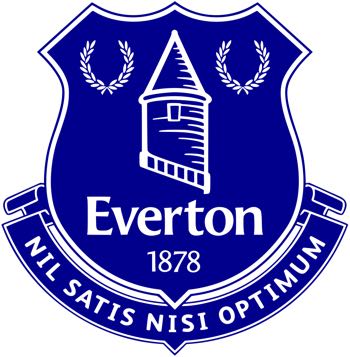As of January 2024, 20% of Premier League clubs are being investigated for – or have already been punished for – breaches of the profit and sustainability rules (PSR) that govern how an EPL outfit can spend their money. So, if club officials know the PSR rules, and are aware of the consequences that can range from fines to points deductions, why do they keep breaking them anyway?
That’s a question that the supporters of the clubs embroiled in the investigations, as well as neutral fans, are pondering. Everton, one of the founding members of the Premier League, were the first club in the EPL to suffer a points deduction after they were found to have breached spending rules. A few months later, Nottingham Forest were referred to a similar independent panel as the one that recommended Everton’s punishment – at the time of writing, they still await their fate.
Chelsea and Manchester City, who have a remarkable 115 charges of over-spending hanging over their heads, could one day also face stiff penalties for breaching PSR –for the latter, a points deduction could be so severe that they would face automatic relegation, according to some sources. So what are the profitability and sustainability rules, and why do clubs keep on breaking them?
What Is Profit and Sustainability in Football?
In an era of Russian oligarchs, venture capital firms and entire Arabian states buying football clubs just for the hell of it, it was decided that some rules might need to be imposed that prevent these sugar-daddies from making English football a monopoly, rather than a meritocracy – the jury is out on whether they have been successful in that regard.
Even so, profitability and sustainability rules (PSR) have been drawn up and both Premier League and Football League clubs must abide by them. These are outlined in the Premier League handbook, a weighty tome packed with jargon, smallprint and legalese. But the most basic of the PSR requirements is that a club cannot post a loss of £105 million or more during a three-year accounting period – if they do, they are in breach of the PSR guidelines.
They can try to recoup some of those losses in the transfer window – Forest sold their homegrown talent Brennan Johnson to Tottenham in a bid to stave off the regulators, but even that £47 million bounty wasn’t enough to snip their loss to an acceptable level.
That might sound a lot, but when you consider that the threshold was set over a decade ago – and hasn’t been adjusted for inflation at any point – you’d argue that EPL clubs are getting off lightly. Once a club has submitted their financial accounts, and any PSR breaches have been unravelled, they have an opportunity to put their side across during a hearing. But that may well fall on deaf ears, so a range of punishments – from a fine to a point deduction, which counts either this season or next – are available to rules officials.
Why Do Clubs Break Financial Rules?
 A punishment can only be described as such when it punishes the offender – for so long, football clubs have been fined for their misdemeanours that they basically don’t care about the rules. Instead, they see these financial sanctions as a cost of business. But the Premier League, fearful of a government movement to bring in an independent regulator to govern English football, have decided that now is the time to get serious about the rules they themselves created.
A punishment can only be described as such when it punishes the offender – for so long, football clubs have been fined for their misdemeanours that they basically don’t care about the rules. Instead, they see these financial sanctions as a cost of business. But the Premier League, fearful of a government movement to bring in an independent regulator to govern English football, have decided that now is the time to get serious about the rules they themselves created.
The points deduction metered out to Everton is likely to be the tip of the iceberg – the Toffees (via a second investigation), Forest, Man City and Chelsea could all face points deductions by the time you read this article. To answer the original question, football clubs have historically broken financial rules because they could – the punishment didn’t fit the crime. But now, they finally face their day of reckoning….few will be so keen to push the boundaries going forward.
What Is the Difference Between PSR and FFP?
It’s easy for people to think that PSR and FFP – financial fair play – are two heads of the same snake. But while PSR are the rules that govern English football, UEFA (European football’s governing body) have introduced financial rules of their own which clubs playing in their sanctioned competitions must adhere to.
Originally known as FFP, UEFA has since dropped that abbreviation because they don’t believe the term ‘financial fair play’ best represents what their rules have set out to achieve – rather than creating a level playing field amongst all clubs, their rules are designed to simply stop a single club from over-spending in a way that would be deemed harmful to the integrity of the league or tournament. So in short, PSR is a means of trying to create some kind of financial fair play – although it shouldn’t be confused with UEFA’s old FFP rules that have since been renamed as ‘Financial Sustainability’ instead.
What Did Man City Do Wrong?
 If Man City were to be relegated as a consequence of their PSR investigation, it would be the most seismic event to happen to English football in decades. This is a club that has dominated the Premier League ever since it was acquired by what is effectively the royal family of Abu Dhabi, who aren’t short of a few quid.
If Man City were to be relegated as a consequence of their PSR investigation, it would be the most seismic event to happen to English football in decades. This is a club that has dominated the Premier League ever since it was acquired by what is effectively the royal family of Abu Dhabi, who aren’t short of a few quid.
The 115 PSR charges brought against City relate to their consistent overspending on transfer fees and player wages, with Pep Guardiola spending well in excess of £1 billion on new players in his time as head coach. To satisfy PSR criteria, that spending has to be offset through gains – be it player sales, commercial deals and the like – that keep the loss within that £105 million threshold.
But here’s where things get interesting. Man City are sponsored by Etihad Airways, a company that’s also a concern of their owners, and they have been accused of artificially inflating the sponsorship deals signed in a bid to pump more money into the accounts – off-setting that crazy transfer spending as far as PSR is concerned. But whether they will get away with some or all of the 115 charges brought against them, only time will tell.

